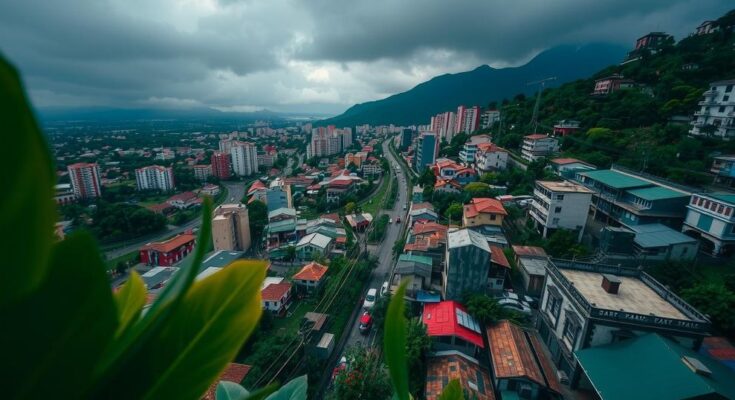In October 2024, Colombia faces severe human rights crises as notable figures like Martín Emilio Rodríguez and Daniel Nolavita are murdered, highlighting dangers for activists. Additionally, mass displacements of Afro-Colombians in Chocó and a massacre in Toribío raise alarms about ongoing violence and insecurity driven by armed groups. Urgent calls for political negotiation and assistance emerge amid worsening humanitarian conditions.
As of October 2024, Colombia’s human rights landscape is marred by tragic events. On October 5, renowned human rights defender Martín Emilio Rodríguez was found dead in Bogotá under mysterious conditions, triggering alarm regarding safety for activists in the capital. His involvement in critical movements and advisement on human rights earned him national attention, shedding light on systemic risks faced by advocates amidst warnings from the Ombudsman’s Office. In a harrowing incident in Toribío, Cauca Department, three individuals were killed on October 7, 2024, during a public gathering, exacerbating the climate of violence in Indigenous territories. Victims Jose Alfredo Yosano Julicue, Fredy Pequí Cometa, and Wilson Eduardo Ascue Ramos, all young men, highlight the vulnerabilities of youth amidst armed conflicts. The local Indigenous authorities are calling for unity and political dialogue as a means to address deep-rooted inequalities. That same day, Indigenous leader Daniel Nolavita was discovered dead in Magdalena after having been abducted a month prior. His gruesome fate underscores the dangers surrounding Indigenous leaders in Colombia, where gang violence reigns. atrocities like his kidnapping reveal the precarious position such leaders face, further emphasized by repeated warnings from the Ombudsman’s Office regarding the threats to human rights defenders. On October 8, the Afro-Colombian community faced a humanitarian disaster in Chocó, reporting mass displacements from Negría and Doidó. The tragic cycle has seen entire families forced to flee their homes multiple times, calling for urgent humanitarian assistance from authorities. ACADESAN urges swift responses and support from the government to mitigate this escalating crisis, reflecting the ongoing social strife that affects marginalized communities. The same day, a chilling murder of three men in Barrancabermeja, Santander, shocked the community. Jairo Badillo Garcés, Carlos Villalba Jiménez, and Edinson Puentes Tarazona were attacked in a public space, suffering the violent repercussions of rampant gang activity. Despite prior warnings about the area’s insecurity, the deep roots of armed challenges continue to endanger civilians, revealing pervasive threats that linger across the nation.
Colombia has been grappling with profound human rights struggles, intensified by ongoing violence against activists, Indigenous leaders, and Afro-Colombian communities. Various regions of the country are plagued with threats from armed groups, leading to increased mortality rates among those who advocate for justice and peace. The pattern of violence against social leaders, particularly in Indigenous territories and urban settlements, highlights systemic issues within Colombia’s security framework and societal inequalities.
Colombia stands at a precarious crossroads with a disconcerting rise in violence against human rights defenders and marginalized communities. The deaths of activists and leaders illustrate the urgent need for comprehensive solutions to ensure safety and promote peaceful coexistence. The recent tragic events echo the critical voices urging for political negotiations and systemic reforms to address the root causes of conflict and injustice in the nation.
Original Source: www.wola.org



